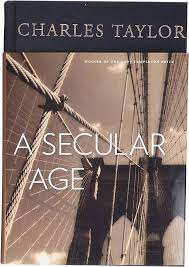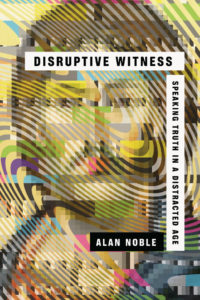Why was it almost impossible not to believe in God five hundred years ago, and now it’s almost impossible to believe in God? That is the driving question behind Charles Taylor’s A Secular Age.
 Having read a half dozen books which tout the significance of and make substantial use of Taylor’s magnum opus, I was convinced I finally needed to take the plunge myself. And indeed Taylor’s work reorganized much of the furniture in my mind—and even forced me to rethink the purpose of the rooms themselves!
Having read a half dozen books which tout the significance of and make substantial use of Taylor’s magnum opus, I was convinced I finally needed to take the plunge myself. And indeed Taylor’s work reorganized much of the furniture in my mind—and even forced me to rethink the purpose of the rooms themselves!
One example: In the medieval age, not everyone was expected to live up to a spiritual or civic ideal. But society as a whole did so, encapsulated in the famous formula: “the clergy pray for all, the Lords defend all, the peasants labor for all.” Each group served the other two. As a result, the nobles and the peasants, for example, are not expected to live the same specialized spiritual life as the clergy, who in a sense made up in that department what the rest lacked.
All that changed with the Reformation after which all were expected to grow into the ideal, whether Catholic or Protestant. The aim is for all to flourish as God intended. Having read Taylor, I now see that expectation in every sermon, every book, every political speech, every commercial. We are all children of the Reformation. Whether from a democratic, totalitarian, conservative, liberal, religious, atheist, or consumerist persuasion—all aspire to have all people flourish (each with their own formula for what is “perfect”).
Which leads to an irony of our day: If this is the age of relativism and supposed tolerance, why are so many absolutely committed to their brand of Reform even to the point of anger and violence (witness the French Revolution, the tens of millions killed by idealist Communist and fascist regimes, and similar justifications for force and violence today)? And what can be done to disrupt the tendency to compel others to follow our agendas? How might we undo our bent to create our version of the “New Humanity” or “New Society” by paradoxically treating people as less than human?
And that’s what this masterful book does over and over—generates huge questions.
Another example: Taylor makes the case that we live in a world of so many possible belief options that everyone is haunted by doubt. (As Taylor puts it, we are all cross-pressured.)
The believer is haunted by, “What if God, heaven, the resurrection—what if it’s just not true? I’m pretty sure it’s true, but what if it’s not? Am I wasting my life?”
At the same time, unbelievers are haunted by, “What if God, heaven, the resurrection—what if it is all true? I’m pretty sure it isn’t true, but what if it is? What may I be missing?”
 I could go on for pages about the provocative, game-changing ideas in the book. I haven’t even mentioned his concepts of our disenchanted world and the buffered self which many other books make first-rate use of (such as Alan Noble’s Disruptive Witness and Mike Cosper’s Recapturing Wonder).
I could go on for pages about the provocative, game-changing ideas in the book. I haven’t even mentioned his concepts of our disenchanted world and the buffered self which many other books make first-rate use of (such as Alan Noble’s Disruptive Witness and Mike Cosper’s Recapturing Wonder).
Taylor’s book is not without weaknesses. It seems churlish to mention things that aren’t in a book that already has 775 pages of dense text. Nonetheless, though he describes step by step how the changes over the last five hundred years happened among elite thinkers, he doesn’t do much to unpack the causes or motivations behind those steps.
Besides generating a devotional focus on death, for example, how else did the deaths of one-third of Europe in the Bubonic Plague affect religious thinking? And how else might have the excesses of the papacy and Luther’s reactions led to the various developments Taylor identifies? Also, how might the discovery of the New World have affected the view of our cosmos and ourselves? And in what ways did the continuous religious wars of the sixteenth century spur the development of Natural Law (and the Enlightenment) in attempts to find ways to settle disputes that didn’t rely on religion? (Okay, maybe all that can be A Secular Age: The Prequel.)
Second, Taylor writes in an unnecessarily arcane academic style. For decades I have been an editor of academic books on philosophy, history, and religion. Even so I could only read about ten pages a day because I had to read most of his very dense pages twice to have any chance of decoding his prose. Luckily we have James Smith’s summary of Taylor, How (Not) to Be Secular, which provides some help with comprehension in a briefer package.
A Secular Age is not for everyone. But I was glad I labored through this stunning book, giving me so much to chew on and appreciate.

One thought on “A Book That Reorganized My Mind”